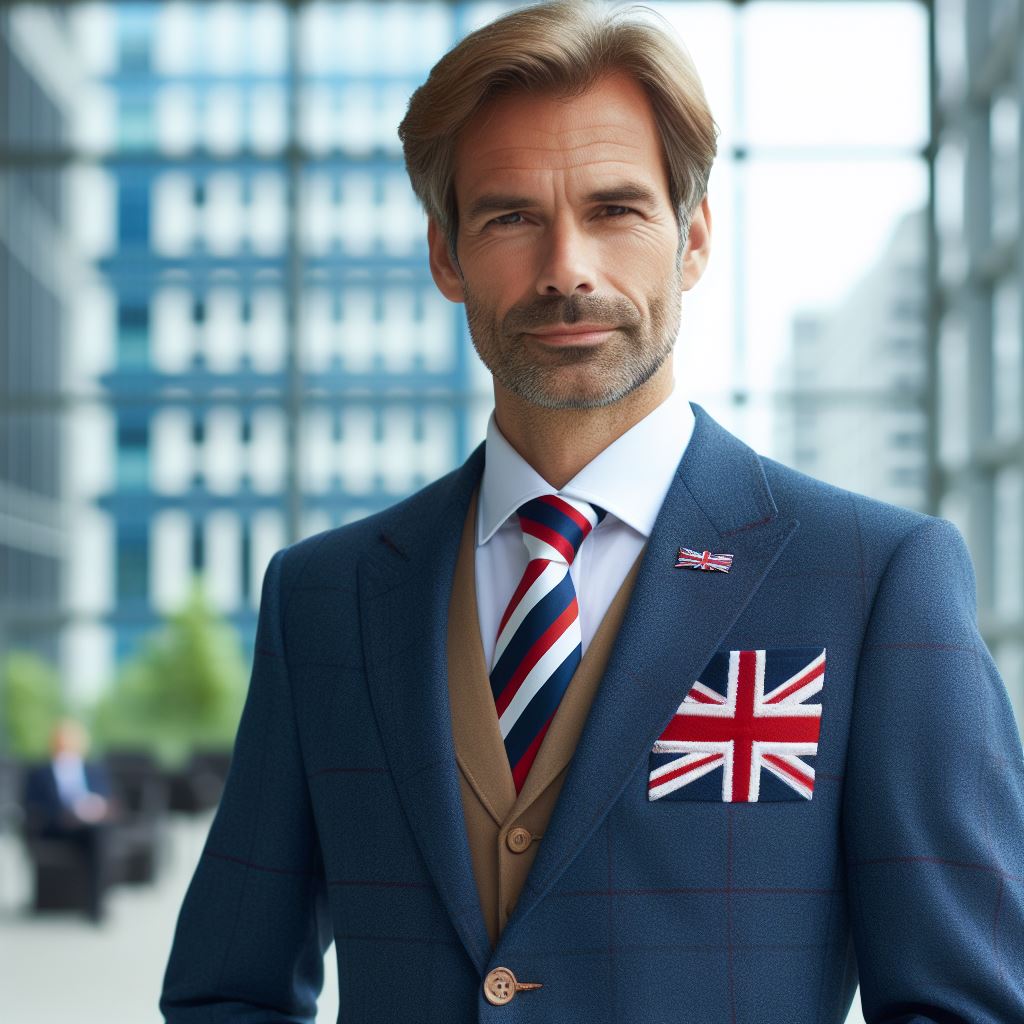Introduction
In this blog, we will explore the significance of diplomatic protocol and etiquette from a UK perspective.
We will begin by defining diplomatic protocol and etiquette, followed by an examination of their importance in international relations. Additionally, we will provide a brief overview of the diplomatic sector in the UK.
Definition of diplomatic protocol and etiquette
Diplomatic protocol governs interactions between diplomats, while etiquette sets the expected behavioral norms in diplomatic circles.
Diplomatic protocol and etiquette encompass the established norms and formalities governing interactions among diplomats and between nations.
It defines the proper conduct, ceremonies, and procedures to be observed in diplomatic relations, ensuring mutual respect and effective communication.
These protocols encompass a range of activities, from official ceremonies and diplomatic immunity to the exchange of diplomatic gifts and the order of precedence in diplomatic events.
Diplomatic etiquette emphasizes the importance of cultural sensitivity and understanding, as diplomats navigate diverse customs and traditions.
Adherence to these protocols fosters a harmonious and respectful environment, facilitating successful communication and cooperation between countries.
Overall, diplomatic protocol and etiquette form the foundation for maintaining decorum, professionalism, and positive relations in the complex realm of international diplomacy.
Importance of diplomatic protocol and etiquette in international relations
Diplomatic protocol and etiquette play a crucial role in fostering positive relationships between nations. They ensure smooth communication, avoid misunderstandings, and promote respect and diplomacy.
Diplomatic protocol and etiquette hold immense significance in international relations as they establish the framework for respectful and effective communication between nations.
By defining rules and behavioral norms, these protocols ensure that diplomatic interactions maintain decorum and mutual understanding.
Adhering to diplomatic protocol fosters an environment of professionalism, helping prevent misunderstandings and conflicts.
It establishes a structured framework for official ceremonies, meetings, and negotiations, enhancing the smooth flow of diplomatic processes.
Moreover, diplomatic etiquette emphasizes cultural sensitivity, promoting harmonious relations by acknowledging and respecting diverse customs and traditions.
Personalized UK Career Consulting
Receive tailored career guidance designed just for you. Get actionable steps and expert support to boost your career in 1-3 days. Take control of your career now.
Get StartedThis is crucial in a globalized world where diplomats engage with representatives from various cultural backgrounds.
In essence, diplomatic protocol and etiquette are the pillars of international diplomacy, fostering positive relations, preventing disputes, and contributing to the overall success of diplomatic endeavors.
Brief overview of UK’s diplomatic sector
The United Kingdom has a longstanding and influential diplomatic sector.
The Foreign, Commonwealth & Development Office (FCDO) is responsible for handling the country’s diplomatic affairs, promoting its interests worldwide, and maintaining strong international relationships.
With this foundation, let us delve deeper into the specific aspects and nuances of diplomatic protocol and etiquette in the UK context.
Diplomatic Protocol in the UK
Role and responsibilities of diplomats in maintaining diplomatic protocol
Diplomats play a significant role in upholding diplomatic protocol, ensuring effective communication and understanding between nations.
They are responsible for representing their countries, providing accurate information, and building positive relationships.
Diplomats play a crucial role in upholding and implementing diplomatic protocol, carrying significant responsibilities to ensure smooth and effective international relations.
Their primary responsibility is to represent their home country professionally and adhere to established diplomatic norms during interactions with foreign officials.
Diplomats must navigate the complexities of cultural differences, demonstrating sensitivity and respect in their conduct.
They are responsible for understanding and implementing the specific protocols governing diplomatic ceremonies, negotiations, and official events.
Maintaining confidentiality and discretion is another vital aspect of a diplomat’s role. Upholding diplomatic protocol often requires diplomats to exercise tact and diplomacy in addressing sensitive issues and conflicts.
Furthermore, diplomats are entrusted with the duty of promoting positive relations between their home country and the host nation.
This involves building and sustaining personal connections, fostering open communication, and mitigating potential misunderstandings.
Your Dream Job Starts with a Perfect CV
Get a tailored CV and cover letter that captures your unique strengths and stands out in your industry. Let us help you make an unforgettable first impression.
Get StartedDiplomats are frontline representatives, embodying diplomatic principles and fulfilling responsibilities crucial for positive international relations.
Key elements of diplomatic protocol in the UK
- Diplomatic ranks and their hierarchical structure: Diplomatic ranks determine the precedence and protocol observed during official engagements. The UK follows a strict hierarchical structure based on rank and seniority.
- Dress code for official events: Diplomats in the UK must adhere to formal attire, following the specific dress codes outlined for different events. This demonstrates respect and professionalism.
- Formalities in meetings and engagements: Meetings and engagements require adherence to formalities such as greeting with proper titles, maintaining decorum, and following established protocols.
- Exchange of diplomatic gifts: The exchange of diplomatic gifts is a long-standing tradition that symbolizes friendship, respect, and diplomatic relations between nations.
- Use of proper titles and forms of address: Using the correct titles and forms of address is crucial in diplomatic interactions. It ensures respect and acknowledges the status and position of individuals.
Overall, diplomatic protocol in the UK plays a pivotal role in maintaining professionalism, respect, and effective communication between nations.
Diplomats have the responsibility to uphold these protocols and foster positive relations on behalf of their countries.
Read: Salary and Benefits of a UK Diplomat Revealed
Etiquette Expectations for Diplomats in the UK
Behaving with cultural sensitivity and respect.
Diplomats in the UK must demonstrate an understanding and appreciation for the diverse cultures within the country.
Understanding British social norms and customs.
- British sense of humor and sarcasm: Diplomats should be aware that British humor often relies on irony and sarcasm, and it is important to respond appropriately.
- Politeness and use of pleasantries: The use of “please,” “thank you,” and “excuse me” is highly valued in British society, and diplomats should incorporate these phrases into their interactions.
- Observance of punctuality: Being punctual is essential in the UK, and diplomats should arrive on time for meetings and events.
- Appropriate dining etiquette: Knowing proper dining etiquette, such as using the correct utensils and following table manners, is crucial during formal meals or official functions.
- Handling British small talk and topics to avoid: Engaging in small talk is customary in the UK, and diplomats should be prepared to discuss topics like the weather or current events.
However, sensitive subjects such as religion or politics should be avoided to maintain diplomatic relations.
Read: Languages and Diplomacy: A UK Diplomat’s Guide

Discover More: Local Gov Career: UK vs. Global Outlook
Challenges and Pitfalls in Diplomatic Protocol and Etiquette
Potential misunderstandings due to cultural differences
- Failure to understand cultural nuances can lead to unintended offense or miscommunication.
- Different attitudes towards punctuality, space, and personal distance can create tensions.
- Varied customs regarding greetings, gift-giving, and dining etiquette may cause confusion.
Types of diplomatic faux pas to avoid
Offensive gestures or actions
- Even unintentional offensive gestures can damage relationships and hinder effective diplomacy.
- Avoid actions that may be interpreted as disrespectful, such as crossing arms or pointing fingers.
- Understanding local customs can prevent mistakenly offensive behavior.
Misuse of language or inappropriate humor
- Choose words carefully and avoid offensive language or expressions that may cause misunderstandings.
- Be cautious while using humor, as jokes can be culturally dependent and misunderstood.
- Always consider the appropriate context and audience before making any humorous remarks.
Lack of respect for protocol or hierarchy
- Familiarize yourself with the hierarchical structure and protocol of the host country.
- Address officials with appropriate titles and use formal language to show respect.
- Failure to adhere to protocol may lead to offense or be interpreted as a lack of professionalism.
Infringing on diplomatic immunity
- Understand the concept of diplomatic immunity to avoid inadvertently stepping over legal boundaries.
- Respect the privileges and immunities granted to diplomatic personnel by host countries.
- Failure to respect diplomatic immunity may strain diplomatic relations and have legal consequences.
Maintaining diplomatic protocol and etiquette is crucial to ensure smooth communication, build trust, and foster positive relationships between nations.
By respecting cultural differences and avoiding faux pas, diplomats can effectively represent their countries and navigate international diplomacy successfully.
Read: UK Civil Service Pension Schemes
Training and Resources for Diplomatic Protocol and Etiquette
Importance of training diplomats in protocol and etiquette
Training diplomats in protocol and etiquette is crucial for effective diplomacy and successful international relations.
Optimize Your LinkedIn for Success
Boost your LinkedIn profile with a professional bio, keyword-rich headline, and strategic recommendations that attract recruiters. Stand out from the crowd and get noticed.
Optimize NowIt ensures diplomats understand cultural nuances, avoids diplomatic faux pas, and maintains professionalism.
Moreover, training helps diplomats represent their country with dignity and contribute to diplomatic dialogue and negotiations.
Existing resources and programs in the UK
In the UK, various resources and programs are available to provide training in diplomatic protocol and etiquette.
Diplomatic Academy of London
The Diplomatic Academy of London offers specialized training programs in diplomacy, including protocol and etiquette.
Their courses equip diplomats with the necessary skills and knowledge to navigate diplomatic interactions successfully.
Diplomatic training courses and workshops
A range of diplomatic training courses and workshops are offered in the UK.
These programs focus on specific aspects of diplomatic protocol and etiquette, providing diplomats with practical tools and strategies.
Role of mentors and experienced diplomats
Mentors and experienced diplomats play a significant role in training new diplomats.
Their guidance and expertise help new diplomats learn the intricacies of diplomatic protocol and etiquette.
Training diplomats in protocol and etiquette is vital. The UK offers resources like the Diplomatic Academy of London, training courses, workshops, and mentorship programs.
By investing in training and resources, the UK ensures its diplomats are well-prepared to fulfill their diplomatic responsibilities effectively.
Read: Navigating Cultural Differences: Tips from UK Diplomats
You Might Also Like: UK Local Govt: Policy Influence Explained
Conclusion
Exploring “Diplomatic Protocol & Etiquette: A UK Perspective” sheds light on the intricate frameworks that guide diplomatic interactions in the United Kingdom.
Understanding Diplomatic Protocol in the UK reveals the structured guidelines governing diplomatic relations, ensuring a professional and respectful environment.
Examining Etiquette Expectations for Diplomats in the UK underscores the importance of cultural sensitivity and adherence to behavioral norms for successful international engagements.
Basically, the exploration does not overlook the Challenges and Pitfalls in Diplomatic Protocol and Etiquette, recognizing the nuanced nature of cross-cultural communication and the potential for misunderstandings.
Despite challenges, the UK is dedicated to offering Diplomatic Protocol and Etiquette training through initiatives like the Diplomatic Academy of London, courses, workshops, and mentorship.
In general, this examination confirms the UK’s commitment to fostering adept diplomats, adept at navigating international complexities for positive global engagements.
[E-Book for Sale]
500 Cutting-Edge Tech Startup Ideas for 2024 & 2025: Innovate, Create, Dominate
$19.99 • 500 Tech Startup Ideas • 62 pages
You will get inspired with 500 innovative tech startup ideas for 2024 and 2025, complete with concise descriptions to help you kickstart your entrepreneurial journey in AI, Blockchain, IoT, Fintech, and AR/VR.




